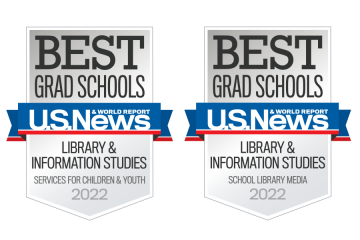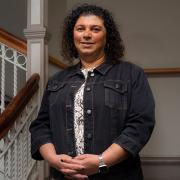Library and Information Science: School Library Teacher Licensure
Simmons offers two post-Master's degree programs for School Library Teacher Licensure.
We offer two options for post-Master's degree programs for School Library Teacher Licensure:
- A program for people who hold a Master's degree in Library Science and who are now seeking licensure by the Massachusetts Department of Elementary and Secondary Education as a School Library Teacher.
- A program for teachers who currently hold a Master's Degree in education and an initial or professional* Massachusetts License as a teacher, a Master of Arts degree in teaching, or a Master's degree in a related field along with an initial or professional Massachusetts Teacher License. At the time of application for the School Library Teacher License you must have a minimum of three years of teaching experience in a Massachusetts public school.
All students admitted to the post-master's program receive a 50% discount off current Simmons tuition.
*Before starting the program, we advise students who hold a professional level license to have a review conducted by the DESE of the standards the DESE expects them to fulfill to be able to add this license. Their coursework will be based on the results of this review. Those with a professional level license must take their completed coursework to the DESE on their own; they will not be endorsed by Simmons.

Ranked among the best
Simmons University is one of U.S. News and World Report’s top ranking schools of library and information science in the nation.


